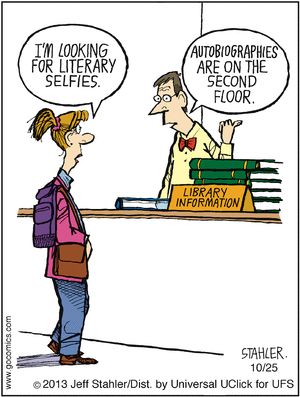
One of my regrets in life is that for a decade (around age 40-50) I punched pause on my learning and grew intellectually disengaged and stale. During those years I didn’t read one book cover-to-cover.
So I’m making up for lost time. Now, my goal is to read and process one book a week. (Don’t overlook the word process in the previous sentence; it’s the key to learning from reading.) I wrote a post about the benefits of reading along with some suggestions on how to maximize learning from reading – Read.
Here’s a list of the books I read and processed in 2017. At the bottom of this list are my six favorites.
The numbers in brackets represent how I rate each book on a scale from 1 (not good) to 10 (exceptional).
January
1. Employee Engagement: Lessons From the Mouse House – Pete Blank – 2012, 113 pages, [4] – I am suspect of any book printed in 14pt. type. Purely anecdotal, the book has little to offer.
2. Create Your Future the Peter Drucker Way – Developing and Applying a Forward Focused Mindset – Bruce Rosenstein, 2014, 164 pages, [6.5] – Good thoughts about staying fully alive and forward-thinking.
3. The Midnight Palace – Carlos Ruiz Zafon – 2011, 298 pages, [5] – I thoroughly enjoyed Zafon’s The Shadow of the Wind, but this novel didn’t connect.
4. Night School – Lee Childs – 2016, 359 pages [6.5] – Reading Childs is like watching an action movie, predictable and simple, but at times, that’s what I need, particularly on transatlantic flights.
5. Employee Engagement for Dummies – Bob Kelleher, 2014, 343 pages, [8] – I’ve read seven books on employee engagement and this is the best one.
6. The Book of Joy – Dalai Lama, Desmond Tutu with Douglas Abrams – 2016, 348 pages, [8] – Abrams interviewed these two great men to get their thoughts on important issues such as forgiveness, gratitude, compassion, generosity and how to overcome the obstacles of joy.
February
7. Drive – Daniel Pink – 2009, 230 pages, [8] – Pink clarifies the difference between extrinsic and intrinsic motivation; a must read for managers; the best leadership book I’ve read in six months.
8. Finite and Infinite Games – James Carse – 198, 152 pages [5] – Throughout the book I was begging for some examples of the complex thoughts Carse proffers. Very dense philosophy.
9. Walking the Tightrope of Reason – Robert Fogelin – 2003, 192 pages [5] – A dense book on philosophy. I learned very little.
10. Delivering Happiness – A Path to Profits, Passion, and Purpose – Tony Hsieh, 2010, 244 pages, [5] – An autobiography by the man who created zappos.com. Not my favorite type of book.
March
11. Deep Work – Rules for Focused Success in a Distracted World – Cal Newport – 2016, 263 pages, [7] – Newport contrasts deep work with shallow work and gives a sound reason to pursue the former. If you’re addicted to social media, you won’t like what he says.
12. Love and Profit – The Art of Caring Leadership – James Autry, 1991, 220 pages, [7] – 71 short chapters, all anecdotal. An easy read. Some of what he says is important, but not all he says.
April
13. The One Thing – The Surprisingly Simple Truth Behind Extraordinary Results – Keller and Papassan, 2012, 223 pages [7] – A lot of good advice but, like so many other self-help books, full of endless bullet-point lists.
14. The Net and the Butterfly – The Art and Practice of Breakthrough Thinking – Cabane and Pollack, 2017, 273 pages [8] – An interesting read sprinkled with supportive research, on how to generate and “catch” good ideas.
15. Black Hole Blues – And Other Songs From Outer Space – Levin, 2016, 241 pages [8] – In 1915 Einstein, using mathematical models, predicted the presence of gravitational waves (sound waves coming from the universe). Fifty years later, scientists from MIT and Caltech started the search. This is the fascinating story of that pursuit.
16. The Map That Changed the World – William Smith and the Birth of Modern Geology – Winchester, 2001, 301 pages [8] – There’s a lot to learn from this story: what 18th century England was like, the life of an amazing man, and the birth of a new type of science – geology.
May
17. Against Empathy – The Case for Rational Compassion – Paul Bloom, 2016, 246 pages [8] – This book changed my mind about empathy (feeling what another person is feeling) because empathy can lead to poor decisions and policies. A better approach is to develop compassion (understanding what another person is feeling but not feeling it).
18. Breaking the Spell – Daniel Dennett, 2006, 386 pages [7] – A philosopher’s perspective on issues of faith. Sometimes he seems to ramble.
19. The Book That Changed America – Randall Fuller, 2017, 250 pages [8] – Gives an interesting context for Darwin’s book and an insightful perspective on what life was like in America in the mid-1800s.
20. World War 2 – A Very Short Introduction – Gerhard Weinberg, 2014, 136 pages [7] – I recently discovered that Oxford Press has a series called “A Very Short Introduction.” These books are concise, well-written summaries of interesting topics (350 different topics).
21. 30-Second Leonardo Da Vinci – Marina Wallace, 153 pages [6] – A nice overview of Da Vinci’s brilliant life. Many pictures and nice explanations.
June
22. 81 Days Below Zero – Brian Murphy, 2015, 2018 pages [7] – An interesting story of survival that also discusses social and historical issues of the 1940s.
23. In the Beauty of the Lilies – John Updike, 1996, 491 pages [5] – Just not my type of novel. His observations are interesting but the plot moves too slowly.
24. The Last Days of Night – Graham Moore, 2016, 366 pages [8.5] – A work of historical fiction, this book tells the story of Thomas Edison and George Westinghouse’s epic battle regarding who invented the light bulb, and also includes the colorful Serbian emigrant, Nicola Tesla. I thoroughly enjoyed this book.
July
25. Business Adventures – John Brooks, 1959, 441 pages [7] – This is Bill Gates’ favorite business book. It’s a history of several significant business events (stock market crash of 1962, the Edsel debacle in the mid-1950s, etc.)
26. The Vanishing American Adult – Ben Sasse, 2017, 274 pages [8.5] – Terrific book on changes we need to make in order to secure America’s future.
27. Order to Kill – Vince Flynn, 2016, 374 pages [6] – I don’t learn much from novels, but they are entertaining. I was amazed at how many typos were in this book; I’m going to contact the publisher just to see how this can happen in a widely published book.
28. Do I Make Myself Clear? Why Writing Well Matters – Harold Evans, 2017, 390 pages [7] – A rather wordy book about how to write clearly and cleanly.
29. Surely You’re Joking, Mr. Feynman – Adventures of a Curious Character – Richard Feynman, 1985, 391 pages [6.5] – Feynman helped build the atom bomb and later won the Nobel Prize in physics. This autobiography gives interesting insight into his brilliant mind.
30. Innumeracy – Mathematical Illiteracy and Its Consequences – John Paulos, 2001, 180 pages [6.7] – Interesting thoughts on the importance of mathematics and the dangers of mathematical illiteracy. His chapter on statistics and probability is good.
August
31. Darkness Visible – A Memoir of Madness – William Styron, 1990, 84 pages [7.5] – This should be required reading for anyone who struggles with depression or for the family members and friends of those who struggle with depression. Styron is a Pulitzer Prize winning author who writes about his personal journey with this disease.
32. The Wolves – Alex Berenson, 2016, 389 pages [5] – During the summer, I read more novels than I usually do. I don’t learn much from novels, particularly this genre (CIA/espionage).
33. Platform – Get Noticed In a Noisy World – Michael Hyatt, 2012, 227 pages [7] – This book was a good resource when I started my blog three years ago. I reread it.
34. Fairness Is Overrated – Tim Stevens, 2015, 224 pages [7] – Stevens served as executive pastor at a large church. He shares 52 leadership tips. No new thoughts but a lot of good reminders.
September
35. 301 Ways to Use Social Media to Boost Your Marketing – Catherine Parker, 2011, 316 pages [6] – Gives a good overview of social media options. Written in 2011 so a lot of information was outdated.
36. I Am Not Sick; I Don’t Need Help – How to help someone with mental illness accept treatment – Xavier Amador, 2012, 249 pages [6.5] – A helpful resource for those who need this message, though the message could have been said in 100 pages instead of 249.
37. Resonate – Present Visual Stories that Transform Audiences – Nancy Duarte, 2010, 228 pages [7.5] – Good information on how to communicate well with presentations.
38. The Stranger – Albert Camus, [6.5] Camus won the Pulitzer Prize. He was a leading voice of the absurdist movement. This novel is thought-provoking.
October
39. Presentation Zen: Simple Ideas on Presentation Design and Delivery – Garr Reynolds, 2012, 296 pages [7.5] – A must read book for those who make presentations, especially if you use Keynote or Powerpoint.
40. Astrophysics for People in a Hurry – Neil DeGrasse Tyson, 2017, 208 pages [7] – Tyson has a gift for making difficult topics easier to understand. This book takes you to a wonderful state of wonder about our cosmos.
41. Writing with style: Conversations on the art of writing – John Trimble, 1985, 143 pages [7.5] – This is a terrific book on writing. Accessible, helpful, and pleasant to read.
November
42. Letters to a Young Contrarian – Christopher Hitchens, 2001, 141 pages [7] – A good conversation on the advantages of free-thinking.
43. How We Die – Sherwin Nuland, 1993, 269 pages [8] – A physician’s insight into the the medical causes of death. A deeply informative and moving read.
44. If You Want to Write – Brenda Ueland, 2014, 127 pages [4] – Cotton candy for the brain.
45. Change or Die – Alan Deutschman, 2007, 218 pages [7] – An interesting approach to lasting change.
December
46. Originals – Adam Grant, 2016, 257 pages [8.5] – A terrific book on creativity, non-conformist, and disruptive innovation. A nice blend of academic and anecdotal discussion.
47. Growing Grapes in Texas – Jim Kamas, 2014, 239 pages [7] – The definitive book on this topic. I’m planting a vineyard in east Texas so this book was very informative.
48. How We Live – Sherwin Nuland, 1997, 369 pages [8] – The sequel to How We Die. He’s a master writer and the subject matter is engaging, delving into the intricacies of medical science.
49. The Big Pivot – Andrew Winston, 2014, 292 pages [6] – I had difficulty in understanding the purpose of this book. Lot’s of facts and statistics but it didn’t take me anywhere.
6 best books I read in 2016
These books are not listed in order of preference. I chose one book from six different categories so you, the reader, might benefit from choosing a category that you like.
Fiction – The Last Days of Night – Graham Moore – Historical fiction, this book tells the story of Thomas Edison and George Westinghouse’s epic battle regarding who invented the light bulb. It also includes the colorful Serbian emigrant, Nicola Tesla.
History – The Map That Changed the World – William Smith and the Birth of Modern Geology – Winchester – There’s a lot to learn from this story: what 18th century England was like, the life of an amazing man, and the birth of a new area of science – geology.
General interest – The Vanishing American Adult – Ben Sasse – Terrific book on changes we need to make in order to secure America’s future.
Self-improvement –The Net and the Butterfly – The Art and Practice of Breakthrough Thinking – Cabane and Pollack – An interesting read sprinkled with supportive research, on how to generate and “catch” good ideas.
Leadership –Originals – Adam Grant – A terrific book on creativity, non-conformist, and disruptive innovation. A nice blend of academic and anecdotal discussion.
Science – Astrophysics for People in a Hurry – Neil DeGrasse Tyson – Tyson has a gift for making difficult topics easier to understand. This book takes you to a wonderful state of wonder about our cosmos.
Do you need more evidence that reading will enhance your life?
Want to live longer? Read a book. That’s the contention of Yale University researchers in a study of 3,635 people published in the September 2016 issue of Social Science & Medicine. They concluded that as little as 30 minutes of book reading a day will extend your life, and that, on average, book readers were found to live more than two years longer than non-readers.
[reminder]What are your thoughts about these thoughts?[/reminder]
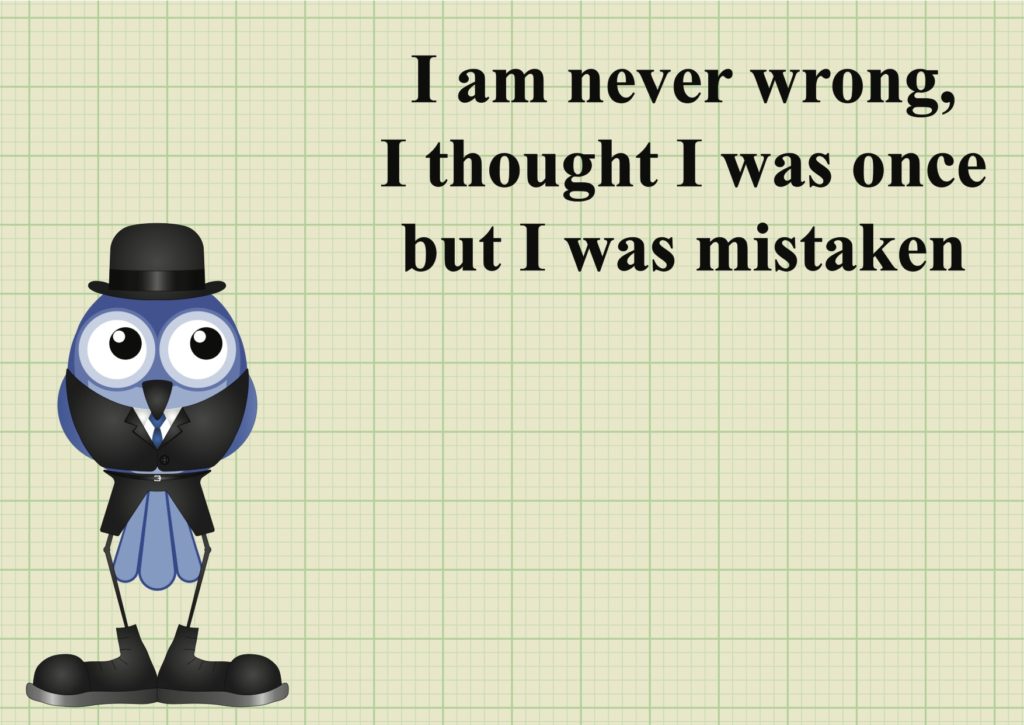

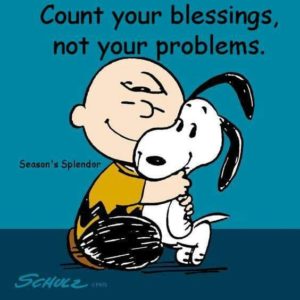
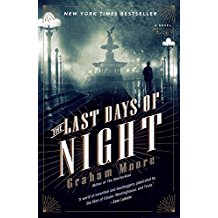
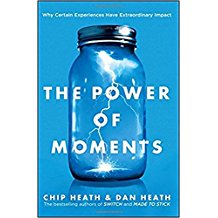 I read a lot; my goal is to read one book a week. Two weeks ago I posted a list of all the books I read in 2017. These were my two favorites.
I read a lot; my goal is to read one book a week. Two weeks ago I posted a list of all the books I read in 2017. These were my two favorites.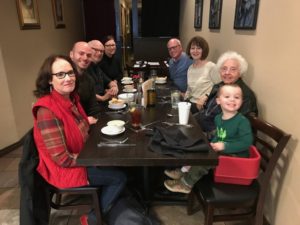 When I was a child we had pot roast every Sunday for lunch. Mom put it in the oven before we left for church and it was ready when we returned. So I have a strong emotional/sentimental connection to the dish. Several years ago I experimented with more than 12 different ways to season and cook a chuck roast and I have perfected the genre. So my favorite meal is to sponsor a carnivore night with family; we often stretch the event to two+ hours. Solomon was right when he said the best thing in life is to eat, drink, and spend time with those you love.
When I was a child we had pot roast every Sunday for lunch. Mom put it in the oven before we left for church and it was ready when we returned. So I have a strong emotional/sentimental connection to the dish. Several years ago I experimented with more than 12 different ways to season and cook a chuck roast and I have perfected the genre. So my favorite meal is to sponsor a carnivore night with family; we often stretch the event to two+ hours. Solomon was right when he said the best thing in life is to eat, drink, and spend time with those you love.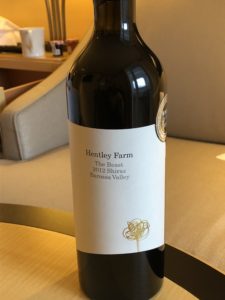
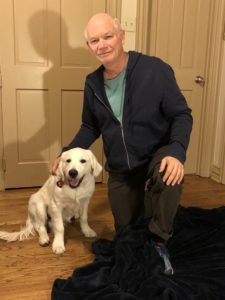 A couple in my church is training a therapy dog which they bring to worship services. It is a beautiful blonde Golden Retriever. One Sunday I asked where they got their dog and they gave me the name of a local breeder. I called; a new litter had just been born. In October I got a wonderful puppy and named him Buddy. He’s my therapy dog: he’s always happy to see me when I get home; he listens to me intently and doesn’t interrupt; he prefers hamburger over lobster. He gives me joy.
A couple in my church is training a therapy dog which they bring to worship services. It is a beautiful blonde Golden Retriever. One Sunday I asked where they got their dog and they gave me the name of a local breeder. I called; a new litter had just been born. In October I got a wonderful puppy and named him Buddy. He’s my therapy dog: he’s always happy to see me when I get home; he listens to me intently and doesn’t interrupt; he prefers hamburger over lobster. He gives me joy.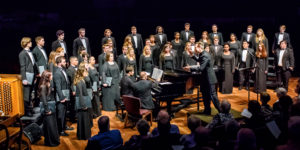 My church, Stonebriar Community Church, sponsors Center Stage Concerts in which a limited audience (250 people) sit in close proximity to the musicians. In October we hosted the UNT choir, directed by Professor Allen Hightower. It was splendid. Many people have never heard the sounds we were fortunate to hear. Choral singing at its best.
My church, Stonebriar Community Church, sponsors Center Stage Concerts in which a limited audience (250 people) sit in close proximity to the musicians. In October we hosted the UNT choir, directed by Professor Allen Hightower. It was splendid. Many people have never heard the sounds we were fortunate to hear. Choral singing at its best.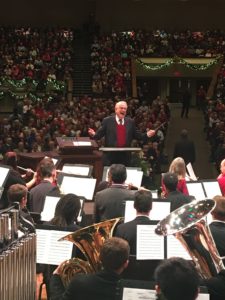 Best fun experience
Best fun experience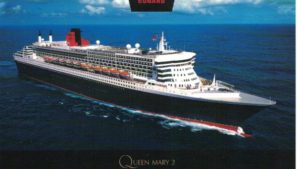 This is our third connective year to sail on this mid-December transatlantic cruise from London to New York City. I want to do this trip every year until I die. It is seven days at sea so there’s nothing to do but read, write, think, and attend lectures—but those are my favorite things to do so I’m in nirvana.
This is our third connective year to sail on this mid-December transatlantic cruise from London to New York City. I want to do this trip every year until I die. It is seven days at sea so there’s nothing to do but read, write, think, and attend lectures—but those are my favorite things to do so I’m in nirvana.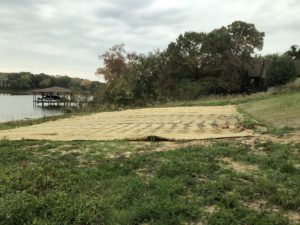 I’ve always wanted to have my own vineyard. The challenge has been where to plant it. This year my daughter and son-in-law bought a large lot on Cedar Creek Lake and started building a lake house. They have graciously allocated a 50×60 plot for a vineyard. We’ll grow Blanc du Bois, Black Spanish, and Tempranillo.
I’ve always wanted to have my own vineyard. The challenge has been where to plant it. This year my daughter and son-in-law bought a large lot on Cedar Creek Lake and started building a lake house. They have graciously allocated a 50×60 plot for a vineyard. We’ll grow Blanc du Bois, Black Spanish, and Tempranillo.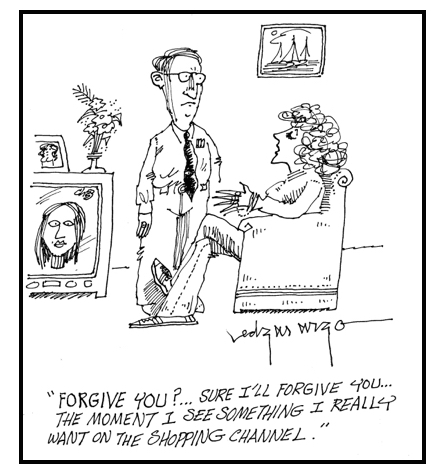 To forgive is to set a prisoner free and discover that the prisoner was you. —Lewis Smedes
To forgive is to set a prisoner free and discover that the prisoner was you. —Lewis Smedes